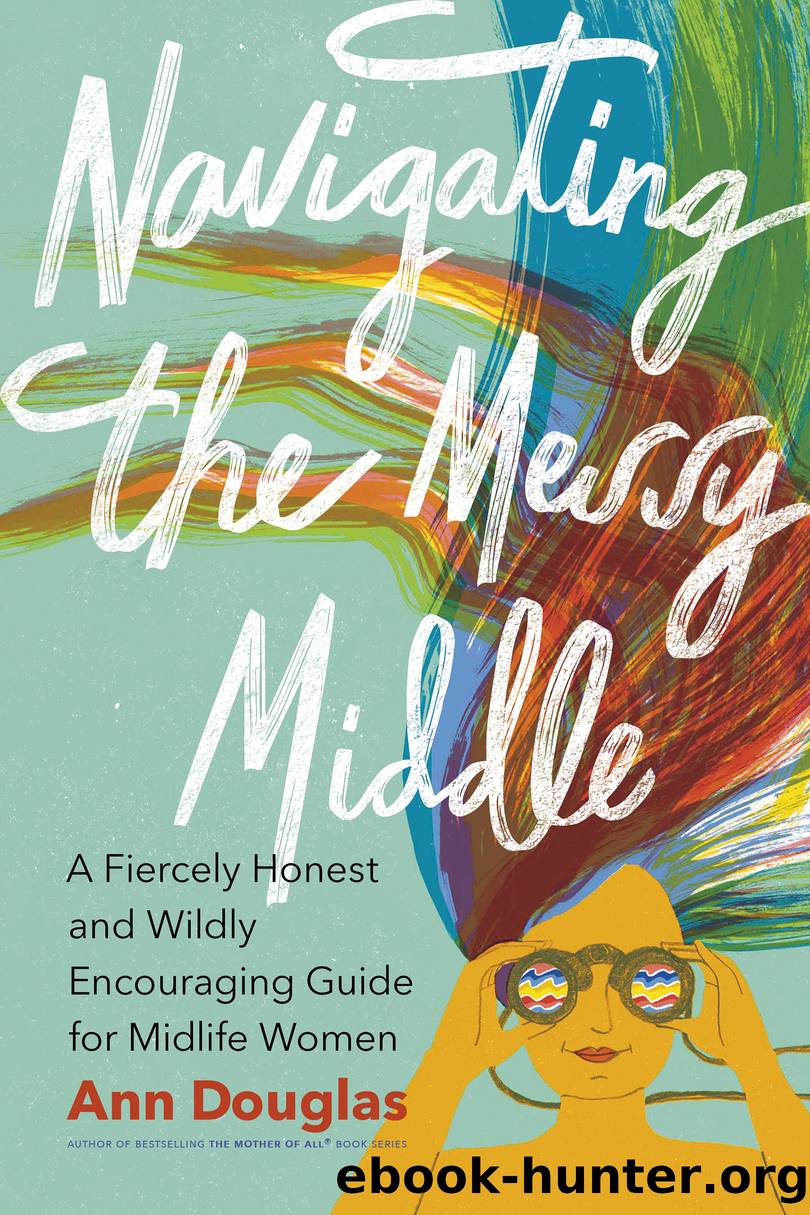Navigating the Messy Middle by Ann Douglas

Author:Ann Douglas
Language: eng
Format: epub
Tags: Women's Health, Self-Help, Motivational, Inspirational, Social Science, Women's Studies, Middle-aged women, Life skills guides, Middle age, Psychological aspects, Social aspects
ISBN: 9781771623445
Publisher: Douglas and McIntyre (2013) Ltd.
Published: 2022-10-02T00:00:00+00:00
Chapter 10
Body Love
âWhat does it mean exactly to love your body on its own terms, as it is now?â
Samantha Brennan and Tracy Isaacs pose this question in their book Fit at Mid-Life: A Feminist Fitness Journeyâand Brennan proceeds to answer in a really powerful way. âWhat does it mean to âloveâ this body? I donât think itâs perfect, aesthetically speaking,â she writes. âThatâs not what I mean at all. I could list all its flaws . . . but I wonât. I love my kids. I donât think they are perfect. Iâm not talking about aesthetics and Iâm not talking about perfection. I donât associate either of those values with love.â
Iâve probably read those words a hundred times over the course of the past year, and yet every time I read them, I am transported to a place of radical self-acceptance, a place where my body doesnât have to be anything to be deemed worthy of love. My body can just be. Itâs a place of freedom, calm and joyâand a place I couldnât have even imagined visiting, back when I was trapped in a decades-long state of self-neglect and self-loathing.
âBody shame flourishes in our world because profit and power depend on it,â writes Sonya Renee Taylor, a Black queer author and activist, in The Body Is Not an Apology: The Power of Radical Self-Love. A key piece of my own midlife journey has been rejecting body shame and stepping into a place of body love. I am choosing to live my life in a way that robs profit and power of at least some of its body shame supply.
Itâs not necessarily an easy journey. Not only are we likely to be carrying around a lot of cultural baggage about body image in general, given our cultureâs toxic and limiting messages about what a body is supposed to be, but now we also get to add a new layer of messaging related to aging. And so, for many of us, midlife becomes a time of recognizing and working through messages of internalized ageismâwhat psychologist Mary Pipher and others have described as âprejudice against oneâs own future self.â
Sheila, who is fifty-seven, remembers struggling with those feelings, back when she was in her early forties. âI remember looking at women who were maybe ten years older than I was and actually feeling afraid. I remember asking myself, âAm I going to look like that?â I remember feeling like I wanted to distance myself from these women. And I remember being both deeply aware of my own internalized ageism and very troubled by what I was feeling.â Sheila ultimately managed to work through these feelings. A decade later, those friends who are ten years older no longer seem âancientâ to her. But it took time for her to make sense of all the thoughts and feelings that were bundled into that initial visceral reaction to the signs of aging on her friendsâ faces.
And thatâs what weâre going to be talking about in this
Download
This site does not store any files on its server. We only index and link to content provided by other sites. Please contact the content providers to delete copyright contents if any and email us, we'll remove relevant links or contents immediately.
50 After 50 by Maria Leonard Olsen(1377)
1610396766 (N) by Jo Ann Jenkins(1298)
Dirt by Bill Buford(1235)
Manipulation: A Guide to Mind Control Techniques, Stealth Persuasion, and Dark Psychology Secrets by Deborah Weiss(1203)
Persuasion: Learn Techniques in Manipulation, Dark Psychology, NLP, Deception, and Human Behavior by Tori Dasani(1146)
The Age of Miracles by Marianne Williamson(1115)
The Middle Passage: From Misery to Meaning in Midlife by James Hollis(1035)
Secret Life of the Grown-Up Brain by Barbara Strauch(1008)
Love and Trouble by Claire Dederer(994)
Finding My Badass Self by Sherry Stanfa-Stanley(977)
The Minimalist Mindset: The Practical Path to Making Your Passions a Priority and to Retaking Your Freedom by Danny Dover(959)
I Miss You When I Blink: Essays by Mary Laura Philpott(916)
In Our Prime by Patricia Cohen(892)
A History of the Popes: Volume II: Middle Ages to the Protestant Reform by Wyatt North(883)
The Art of Not Falling Apart by Christina Patterson(873)
The Change by Germaine Greer(869)
Fear of Fifty by Erica Jong(856)
Between Them by Richard Ford(841)
Midlife Irish by Frank Gannon(838)
